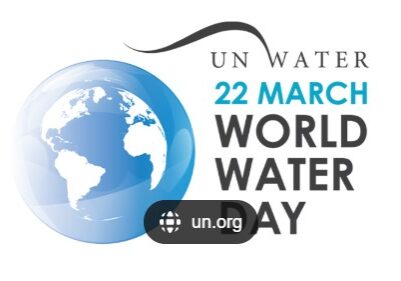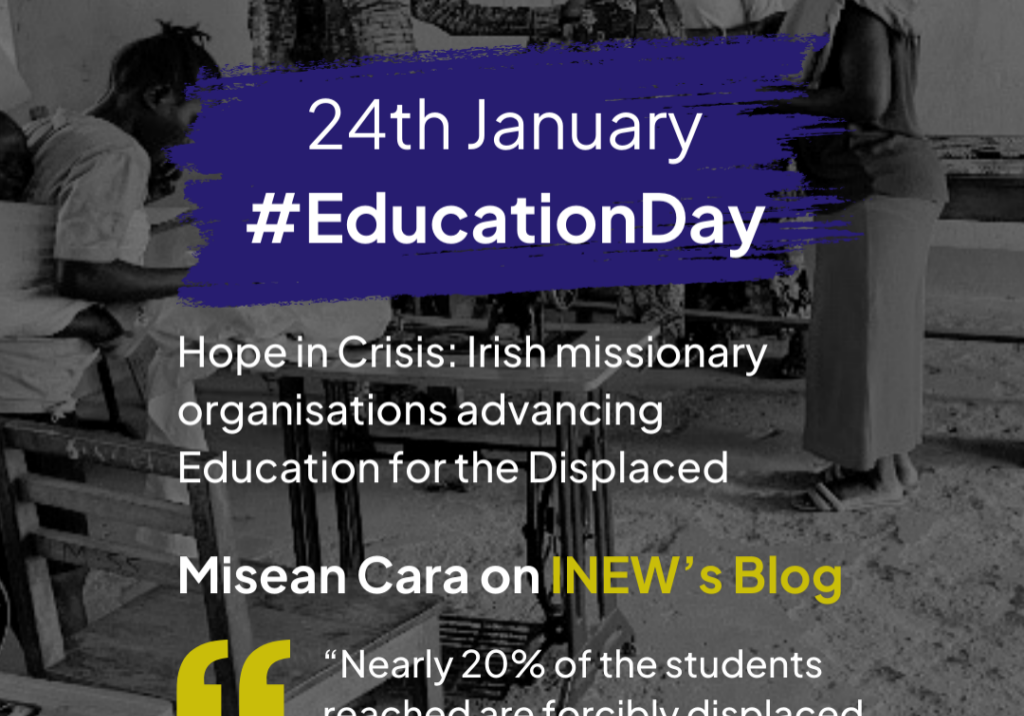Human Rights Day marks the annual challenge to build towards dignity, freedom and justice
By Eamonn Casey, Misean Cara Human Rights & Advocacy Project Officer
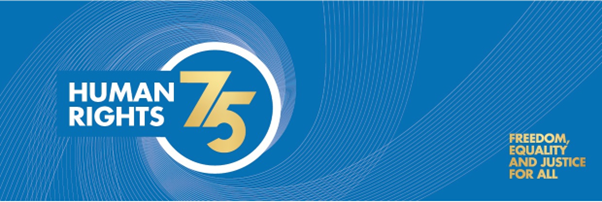
Human Rights Day is celebrated on December 10th each year to help make people aware of the rights and freedoms inherent to them as human beings – regardless of race, caste, nationality, religion, gender, ethnic origin, or any other status.
It marks the day in 1948 when the UN General Assembly passed a resolution adopting the Universal Declaration of Human Rights, in what was set up as “a common standard of achievement for all people and nations”.
That has inspired more than 60 human rights instruments, which together establish an international standard of human rights, although these are not all recognised, and by no means observed by all states and societies for all individuals.
There are many critics of human rights (on the grounds of relevance, legitimacy, non-enforceability and seeming effectiveness, among other reasons) while advocates give them more credit for generating or framing legal, social, policy and accountability changes – and even giving marginalised citizens a discourse of change and more equitable organisation of society, despite their very uneven acceptance and application across the world.
Despite human rights often being neglected, they represent a framework for “progressive measures, national and international” to help societies advance dignity, freedom and justice – and as such, are central to the work of Misean Cara members, alongside the Missionary Approach to Development Interventions.
Dignity, Freedom & Justice for All- Key Messages from the Universal Declaration of Human Rights:
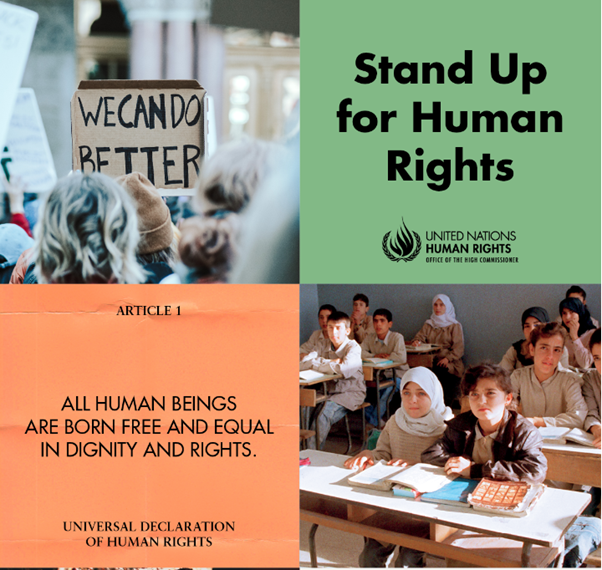
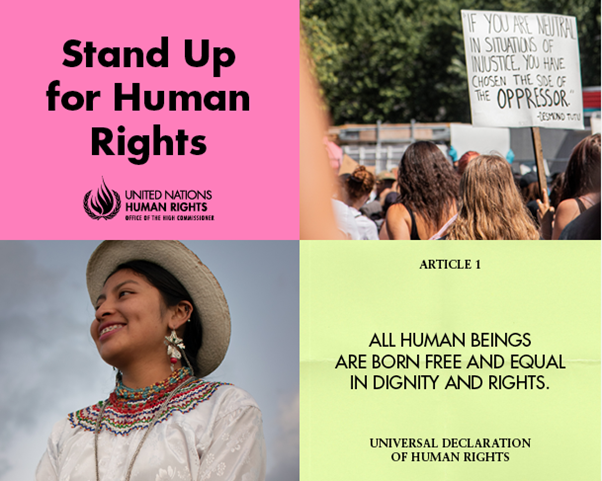
Inspiring people to know and claim their rights
The UDHR has been an inspiration for civil society groups to stand up for, empower and walk with the most vulnerable and disadvantaged sections of societies in their struggle to claim their human rights, says Brother Tino D’Abreu of Edmund Rice International (ERI), a human rights partner of Misean Cara in 23 nations around the world through its links with Edmund Rice Development.
In the lead up to the commemoration of the 75 years of the UDHR, ERI encouraged children in its global network to participate in global surveys and inputs for the HR75 Youth Declaration organized by OHCHR.
Students responded very positively and, in their feedback, remarked that they felt very motivated as they were asked to address important questions, while voicing their opinions freely in a safe space. The fact that the UN Human Rights Office had put out a broad call for young people’s inputs gave them belief that the UN cares for their voices; and the young participants felt it would be great if more children could give their feedback.
The young people from Edmund Rice schools in India identified important challenges for the world (including climate change, economic inequality, social and economic discrimination) and felt human rights could and should play a part in addressing them. They urged the UN to show no bias or partiality towards rich or powerful countries in access to justice or resolving issues, and that people affected by issues must be consulted on how to address issues.
The youth respondents also committed to raising awareness of human rights; and involving themselves in non-violent movements for change by promoting equity, justice, peace, respect for diversity and ‘our common home’ (the earth) within their societies and on powerful social media platforms.
To celebrate UDHR75 and the youths input to UN commemorative events, ERI and its advocacy school network in India is holding an 8 December for students and staff to highlight the progress that has been made, the challenges that remain, and the role for quality education in making human rights a reality for all.
Marist Brothers ‘harness collective efforts’ for child rights
Another Misean Cara member exemplifying commitment to advocating for human rights, with and for children and young people, especially those living in vulnerable conditions, is the Marist Brothers – which works closely in this area with the Marist International Solidarity Foundation (FMSI).
They focus on educating children and young people across 80 countries worldwide, as well as working to raise awareness about the crucial importance of defending human and child rights and safeguarding, particularly for those at the highest risk.
Central to their advocacy is engagement in the Universal Periodic Review (UPR) mechanism, a key tool of the human rights system which enables FMSI to present reports and recommendations to the United Nations on the human rights situation of states, which come under periodic, rolling review every four or five years.
UPR preparations and engagement is assisted by Misean Cara through Irish Aid co-funding, which supports projects including New Horizons for a Transformative Education Model involving six countries (Malawi, Angola, Zimbabwe, Zambia, South Africa, Mozambique) and the Moulovibazar Education Program in Bangladesh.
In addition to UPR-related initiatives, Marist Brothers projects supported by Misean Cara include the Fratelli Project in Lebanon and the Three2Six Project in South Africa, ensuring education for refugee children; initiatives in Bangladesh protecting and providing education for children forced to work in tea gardens; initiatives for Restavek children in Haiti who are treated as slaves; and enhanced education options and life choices for young people with disabilities at the Hopeville Centre in Abia State, Nigeria.
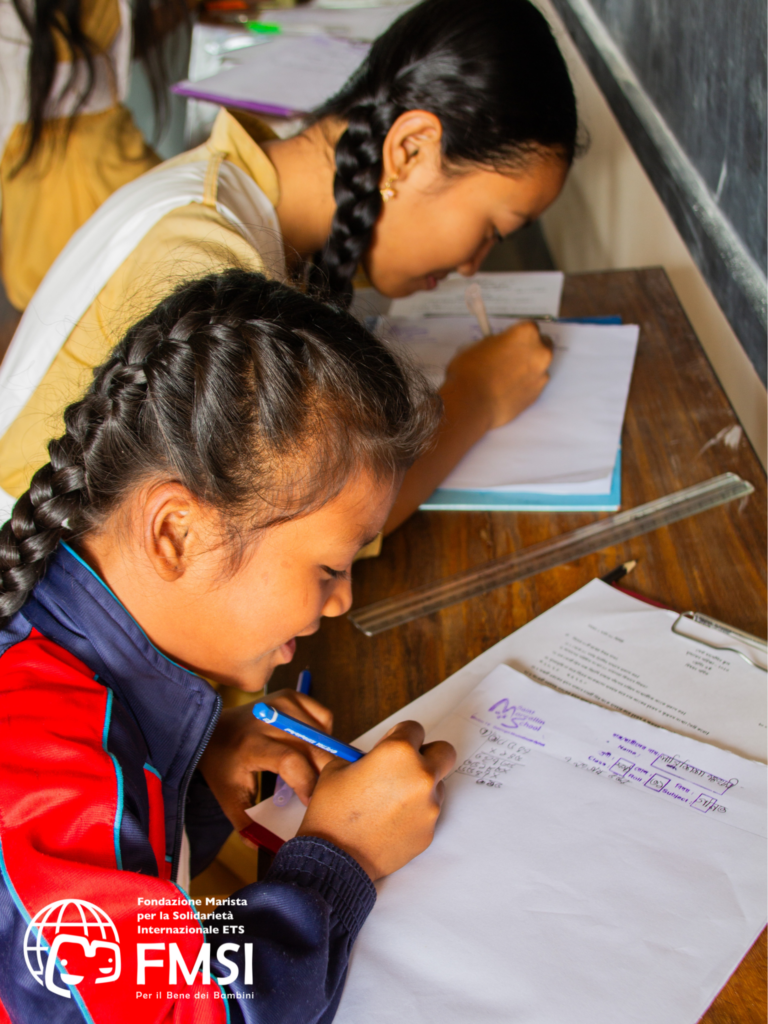
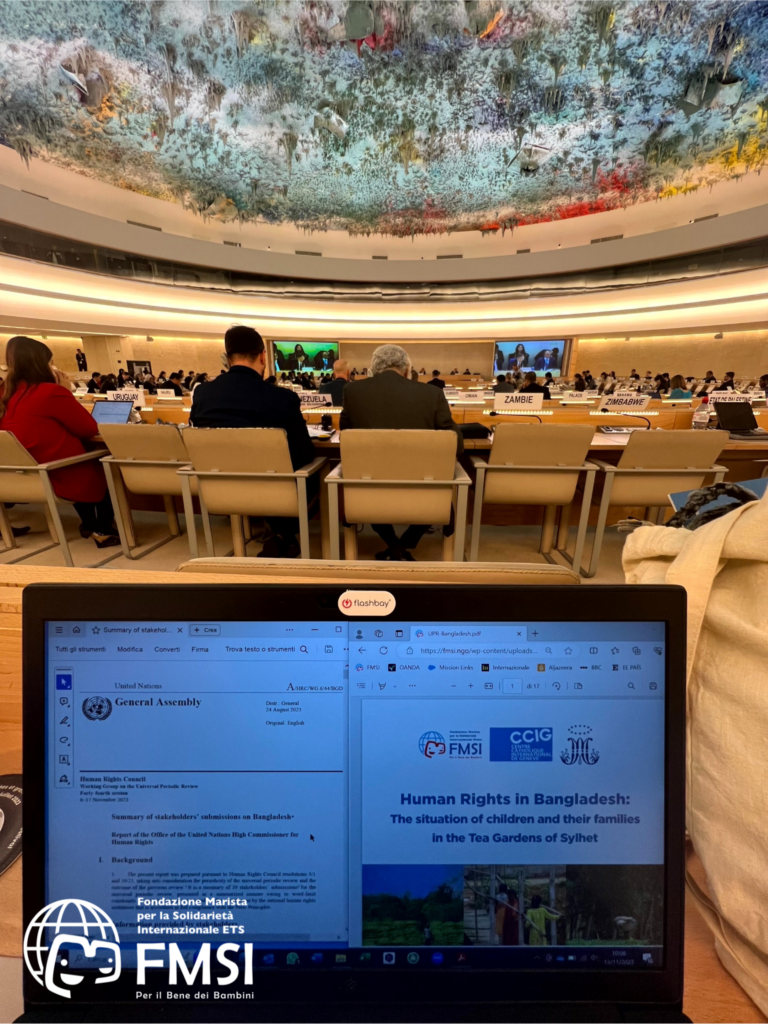
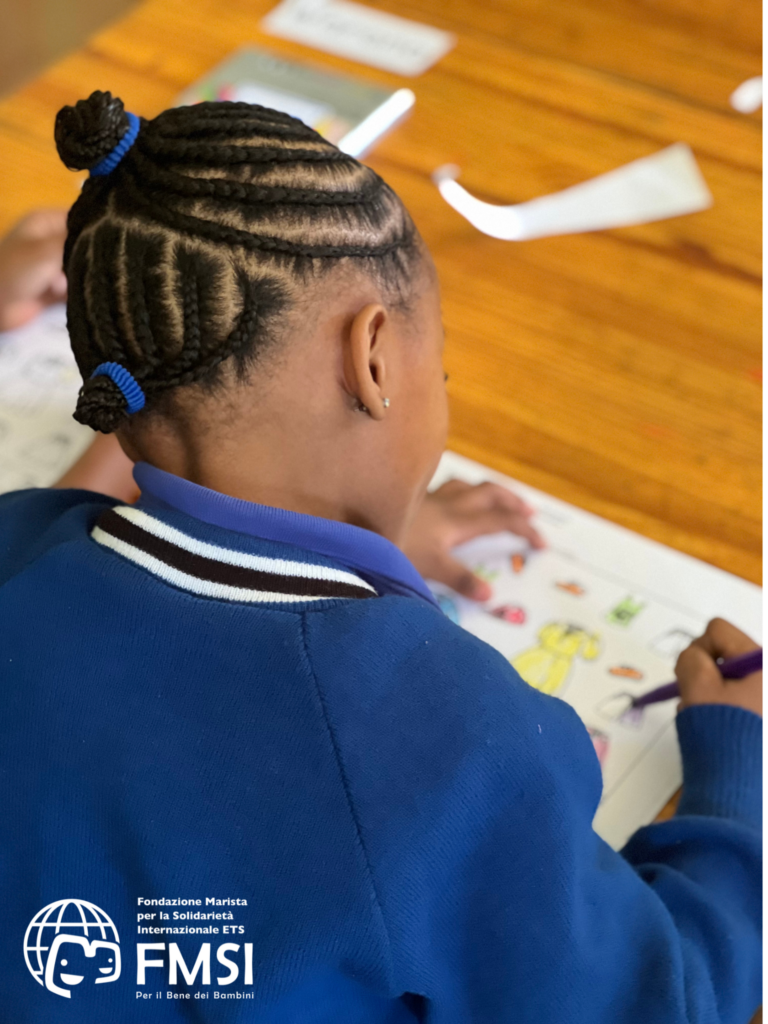
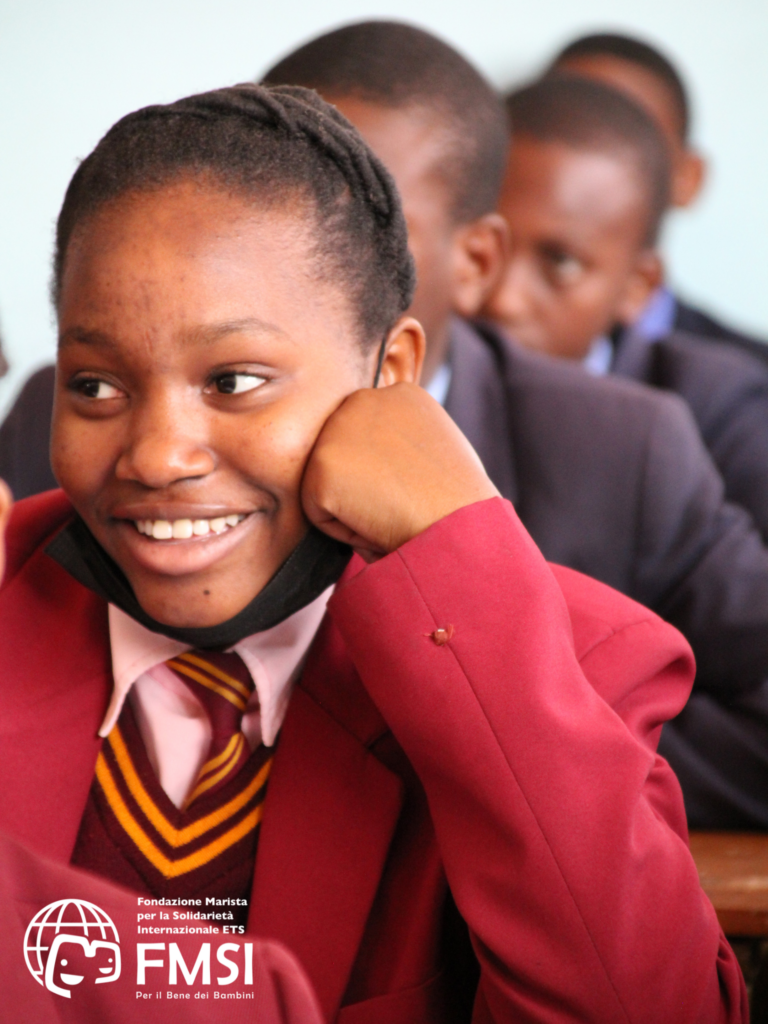
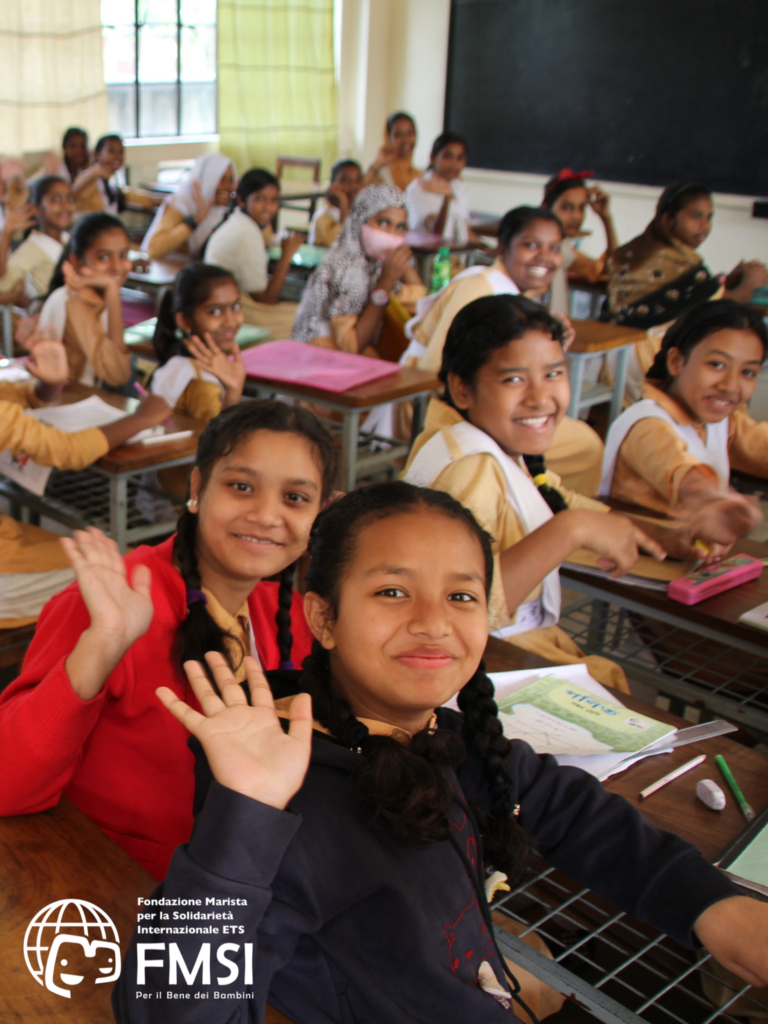
Human rights challenges are pronounced for excluded groups and young people in different societies (perhaps especially low-income countries, fragile states and those with internal upheavals or violent civil conflicts), as they bear the brunt of global and local challenges such as war, poverty and inequality, climate change, violence, and racism.
The Marist Brothers not how the slow, painstaking and, importantly, participatory and collaborative work of preparing and submitting to the United Nations UPR and other human rights reports is important in harnessing collective efforts to protect the rights of children amid the complex and interconnected challenges they face.
The responsibility falls not only on the present generation but also on the shoulders of young people who will carry the struggle forward into the next generation, making the ongoing commitment to human rights advocacy even more critical for a just and inclusive future.
#UDHR75 #HumanRights75, #Act4RightsNow #NothingforUsWithoutUs
Misean Cara members and partners working to advance and support the rights of the furthest behind:
SELL Foundation
Saint Patrick’s Missionary Society
Kolkata Mary Ward Social Centre
Institute of the Blessed Virgin Mary, Loreto
The Justice Desk
Edmund Rice Development
Haki Yetu
Saint Patrick’s Missionary Society

